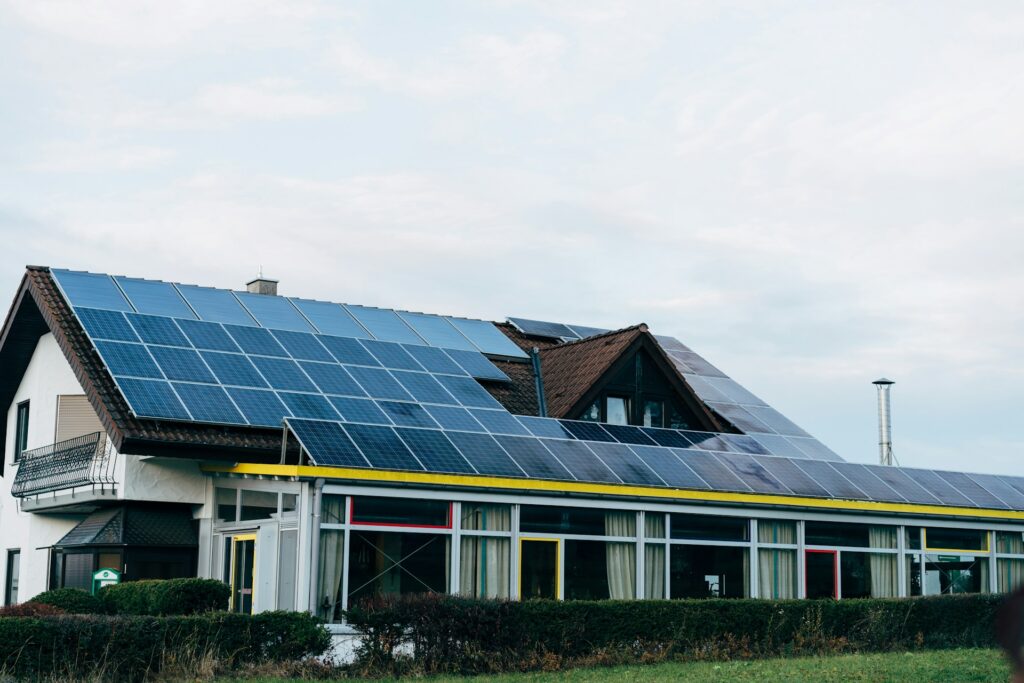Many businesses have made a commitment to the environment and sustainability over the past few decades. Some industries seem to treat green initiatives as a trend, as you don’t see any significant or long-lasting changes to their business procedures. However, the commitment to sustainability in construction is real. This makes sense because many materials used in construction have natural origins, such as wood and concrete. Recycled steel helps cut costs and reduces environmental impact. These are just a few reasons why sustainability is key to ensuring the construction industry continues to grow and thrive.
As green building practices surge, the need for specialized talent grows at an equal rate. Expertise in sustainable practices, innovative technologies, and a deep understanding of environmental impact are in high demand right now. Competition is fierce for talent, and professional recruiters are vital in connecting construction firms with green-focused professionals. Here’s a look at the growing demand for talent in sustainable and green production — and how recruiters play a key role.
Emphasis on Green Building Materials
The foundation of green building construction lies quite literally in the materials the industry uses. Innovative options like recycled steel, sustainably harvested bamboo, reclaimed wood, and low-VOC (volatile organic compound) paints and finishes reduce environmental impact and make sustainability a reality. An industry-wide emphasis on green building materials has caused a shift in the talent marketplace.
Top construction companies seek candidates who understand not just how to build, but what to build with. They need professionals who understand which materials are best suited for a green project. The new construction worker understands the intricacies of environmental impact, supply chains, and the specific techniques required to make structures sustainably. Workers skilled in material science and sustainable procurement, who might not have considered construction before, can now find a warm reception in the industry.
Energy Efficiency and Smart Buildings
While highly efficient buildings have been important in construction since at least the 1970s, utilizing energy effectively and responsibly is a cornerstone of sustainability. Today, smart building technologies help make energy efficient building projects possible. We’re seeing widespread adoption of IoT (Internet of Things) devices, advanced building management systems (BMS), and automated controls for things like lighting and HVAC. These technologies work together to optimize a building’s energy usage and reduce environmental impact.
Implementing such sophisticated systems requires a new breed of construction professionals. Top firms are actively seeking project managers who can oversee complex technological integrations. Engineers skilled in designing and implementing smart systems are also in high demand. Even tradespeople like electricians and HVAC technicians can increase their value by learning about IoT, BMS, and automation.
Net-Zero Homes
Energy efficiency and smart building technology aren’t just for commercial construction projects. A growing percentage of the home-buying public is now interested in the “net-zero” concept. A net-zero home is a residential structure that generates as much energy as it consumes over the course of a year. This is accomplished with solar panels and other renewable energy sources. Achieving net-zero requires meticulous planning, innovative design, and a precise construction process.
Multiple new job roles make net-zero home construction a reality. These include energy modelers who can accurately predict a building’s energy performance. There are also sustainable architects who specialize in designing ultra-efficient, renewable homes and other structures. Although not entirely new, skilled solar installation specialists are now actively sought after, thanks to their critical role in making net-zero homes a reality.
Green Building Certifications
As construction firms seek talent with green building skills, certifications become more important. Workers with these certifications stand out from the crowd, as hiring managers know these are candidates with modern construction experience. Valuable certifications include LEED (Leadership in Energy and Environmental Design), the WELL Building Standard, and BREEAM (Building Research Establishment Environmental Assessment Method).
While these certifications validate a candidate’s experience with green building, construction companies also look for other accreditations not necessarily related to construction. Professionals skilled in documenting compliance, analytics, and sustainable project management also catch the eye of recruiters and hiring managers. In fact, any degrees or certificates that validate a candidate’s knowledge of sustainability standards are also valuable in the construction talent marketplace.
Talent Is the Key to Sustainable Success
Green building construction trends cover a wide range. From new building materials to IoT and net-zero, today’s construction firms must keep up with a lot to meet their sustainability goals. The one common thread is that talent is the key to sustainable success. Construction companies that are serious about green building must prioritize hiring the right expertise. As this roundup of sustainable construction jobs shows, specialized talent in key roles is critical to building the future.
As a recruiting firm with decades of experience in construction staffing, MRINetwork is ready to help your company build its sustainable future, one hire at a time. To learn more, contact an MRINetwork office near you today.

Connect with MRINetwork